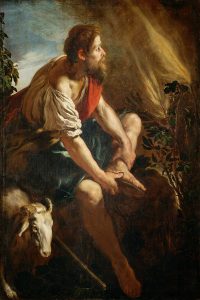When we first started discussing the Book of Exodus, I mentioned that a new phase of history had begun! The Children of Israel were no longer just a family but rather had become a ‘people’ – and a ‘people’ requires a new style and type of leadership, the type of leadership demonstrated by Moses. This is the kind of leadership that the Book of Exodus describes:
” … Moreover, the man Moses was very great in the land of Egypt, in the sight of Pharaoh’s servants and in the sight of the people.” (Exodus 11:3)

Moses was not the only one who is highly praised for his greatness in the Hebrew Bible. In fact, two other Biblical figures have received (nearly) the same honor: Joseph (Genesis) and Mordecai (The Book of Esther).
In Joseph’s case the Bible says:
“Then Pharaoh said to Joseph, “Since God has shown you all this, there is none so discerning and wise as you are. You shall be over my house, and all my people shall order themselves as you command. Only as regards the throne will I be greater than you.” (Genesis 41:39-41)
In Mordechai’s case: “…and the full account of the high honor of Mordecai, to which the king advanced him, are they not written in the Book of the Chronicles of the kings of Media and Persia? For Mordecai the Jew was second in rank to King Ahasuerus…” (Esther 10:2-3)
The main difference between Joseph and Mordecai to Moses is that while the first two received great honor and tribute from the king alone, Moses received great honor from both the people (lower classes) and the king’s servants (upper classes).
Moses represents true leadership, by being proclaimed the leader of all people.
